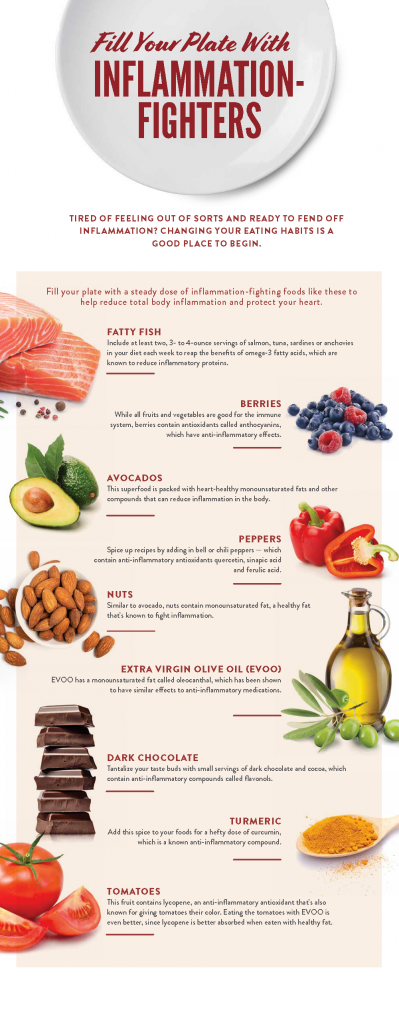Battle Back Against Inflammation With the Foods You Eat
You may have heard the word “inflammation,” but do you really have a good understanding of what it is? The National Institutes of Health defines inflammation as the “immune system’s response to an irritant.”
Odds are, you’ve dealt with it at one time or another. But while the immune system works to protect your body, this inflammatory response can be harmful when it lingers.
Fortunately, you can take steps to limit inflammation with some lifestyle habits, including paying attention to what you’re eating.
How Inflammation Affects the Body
When your immune system is reacting to harm, such as an infection, that type of inflammatory response — or inflammation — is called “acute.” It typically disappears after the threat to your health disappears.
But inflammation can also become chronic. This type of inflammation occurs in response to triggers related to everyday life, such as cigarette smoke or an excessive amount of fat cells in the body. When chronic inflammation is present, your body reacts in a number of ways.
For one, inflammation causes your body to build up fatty plaque in the arteries, which can cut off blood flow and contribute to heart attacks and stroke. Inflammation in the brain may be a factor in the development of Alzheimer’s disease and dementia, and when the joints are inflamed, you’ll experience the uncomfortable symptoms of what’s known as arthritis.
The Role of Diet in Limiting Inflammation
Living a healthy lifestyle is a key part of keeping your immune system functioning at its best. Not smoking, getting quality sleep, exercising regularly and eating a balanced diet are important components of a healthy lifestyle.
The foods you eat play a particularly important role. An anti-inflammatory diet can be beneficial, particularly if you experience inflammation frequently or have a medical condition affecting the immune system. There’s no one-size-fits-all diet, but good habits help.
There are some foods known to contribute to inflammation. You’re probably familiar with them, since they’re usually identified as foods you should limit in a healthy diet. Try to reduce your intake of refined carbs (like those in baked goods), fried foods, sugary drinks, red and processed meats, and margarine.
Boost your immune system even more by filling your plate at meals and snacks with some known inflammation-busters. Check out our infographic for details!






